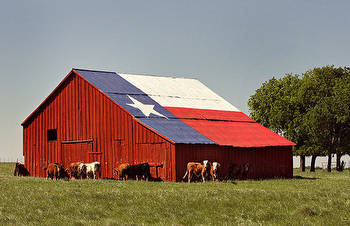Latest updates about regulations of the gambling industry in the U.S. in 2023

Gambling has been a significant part of American culture since its inception, and the industry has grown and evolved over the years. The modern gambling industry in the United States is highly regulated, and the laws that govern it have changed over time. In 2023, there have been several updates about regulations of the gambling industry in the U.S. This article aims to discuss the latest updates about regulations of the gambling industry in the U.S. in 2023.
Several states in the U.S. have legalized online gambling, opening widespread access to all sorts of casino games in a number of states. Some of these games include online slots in which you can play with real money, as well as table games such as roulette, blackjack and more. In 2023, there are likely to be further updates to these regulations, with more states considering legalizing online gambling. The growth of the online gambling industry has led to calls for federal regulations, but it is unclear whether such regulations will be put in place in 2023.
Sports betting has rapidly grown in popularity across the United States, with many states legalizing and regulating the industry in recent years. As of 2023, more than half of the states in the country have legalized sports betting, and this number is expected to continue to grow in the coming years.
However, the lack of federal regulations for sports betting has led to a patchwork of state laws, which can create challenges for both operators and consumers. Some industry experts have called for federal regulations to create consistency across the country, while others argue that individual states should be left to regulate the industry as they see fit.
One argument in favor of federal regulations is that they could provide better protections for consumers, such as standardizing rules around responsible gambling and ensuring that operators are properly licensed and vetted. Federal regulations could also help to prevent illegal sports betting, which remains a problem despite the growing number of legal options.
On the other hand, some argue that state-level regulation is better suited to meet the needs of consumers and the industry. States have different demographics and cultures, and what works in one state may not work in another. Additionally, state regulation allows for more flexibility in responding to local needs and concerns.
Tribal gaming refers to the operation of casinos and other gaming facilities by Native American tribes on their land. This form of gaming has become an important part of the gambling industry in the United States, generating billions of dollars in revenue each year. However, the regulation of tribal gaming is complex, and there are many different issues that must be considered.
One of the primary issues in tribal gaming regulation is the rights of tribes to operate casinos on their land. The Indian Gaming Regulatory Act (IGRA) of 1988 established the framework for tribal gaming in the U.S., granting tribes the right to operate casinos on their land if certain conditions are met. These conditions include obtaining a gaming license from the National Indian Gaming Commission (NIGC), entering into a gaming compact with the state in which the tribe is located and complying with various other regulations.
Another issue in tribal gaming regulation is the role of the federal government in regulating tribal gaming. The IGRA established the NIGC as the primary regulatory body for tribal gaming, but some critics argue that the federal government has not done enough to ensure that tribes are operating casinos in a fair and transparent manner. There are also concerns about the impact of tribal gaming on neighboring communities and the environment, and some argue that the federal government should take a more active role in addressing these issues.
In 2023, there are likely to be updates to the regulations that govern tribal gaming. These updates may address issues such as the expansion of tribal gaming operations, the impact of tribal gaming on neighboring communities and the rights of tribes to operate casinos on their land. It is also possible that the federal government will take a more active role in regulating tribal gaming, either through changes to the IGRA or through other legislation.
Tribal gaming is an important part of the gambling industry in the U.S., and the regulation of this industry is complex and multifaceted. As the industry continues to evolve, it is likely that there will be ongoing debates and discussions about the best way to balance the interests of tribes, the gambling industry and the broader public.
Money laundering is a significant problem in the gambling industry, and in 2023, there are likely to be updates to the anti-money laundering regulations that govern the industry. The Financial Crimes Enforcement Network (FinCEN) is responsible for enforcing anti-money laundering regulations in the gambling industry, and they are likely to introduce new rules and regulations in 2023.
The gambling industry in the U.S. is highly regulated, and many different laws and regulations govern it. In 2023, there have been several gambling industry regulation updates regarding online gambling, sports betting, tribal gaming and anti-money laundering. These updates are likely to have a significant impact on the industry, and they will be closely watched by players, operators and regulators alike.




































